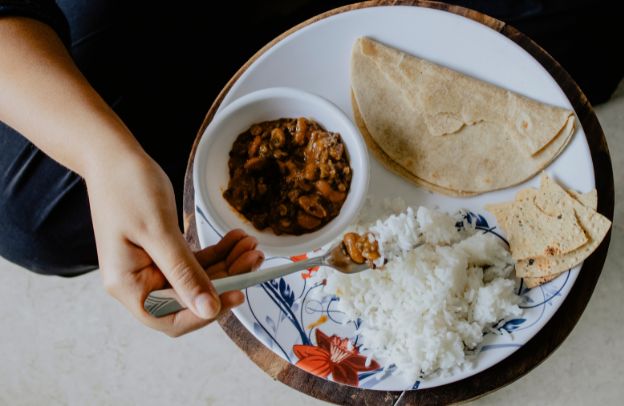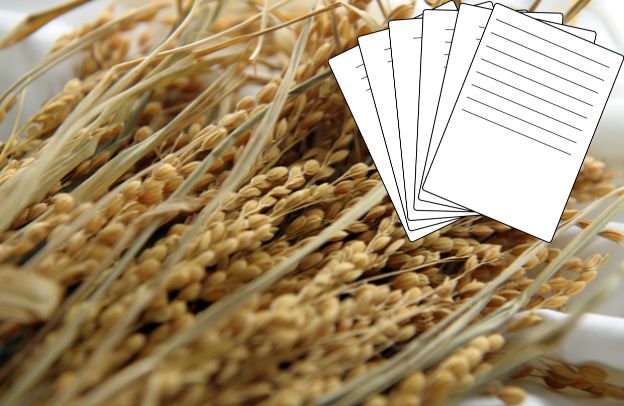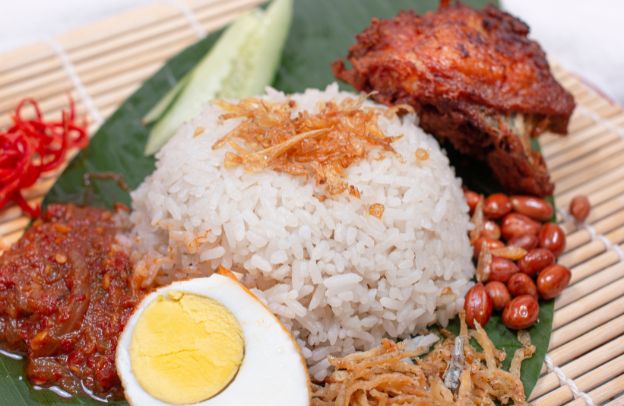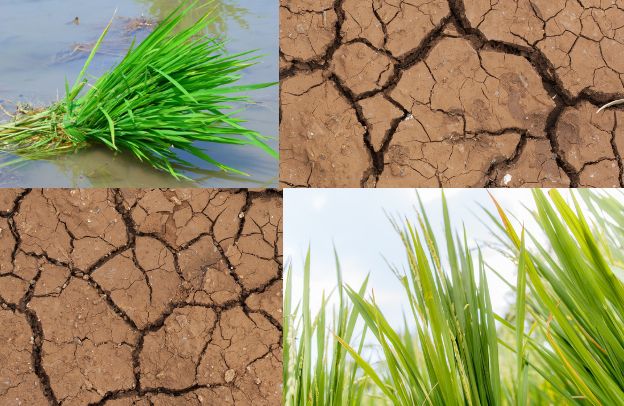Unlocking the Power of Rice: From Health Benefits to Economic Prosperity in Agribusiness

When you think about rice, what comes to mind? Perhaps it’s the aroma of a hearty jollof dish on a family dinner table or the simplicity of a quick meal to fuel your day. For centuries, rice has been a central staple in Nigerian and African cuisine, bridging generations and cultures. But have you ever considered how this versatile grain could transform not only health outcomes but also serve as a catalyst for economic prosperity within the global African diaspora community?
Want to learn more about storytelling? Start by downloading the first chapter of The Storytelling Mastery.
This article will take you on a journey through the nutritional power of rice, its immense agribusiness potential, and the transformative role of collaboration and continuous self-improvement for African diaspora entrepreneurs venturing into the world of agriculture.
Together, we will uncover how rice can serve as a cornerstone for feeding growing populations, building sustainable enterprises, and uplifting communities. From understanding its economic value to leveraging innovative farming techniques and forging impactful partnerships, we’ll explore how this staple crop can be the driving force behind a legacy of empowerment, resilience, and prosperity for generations to come.
The Importance of Rice in the African Diet
In Nigeria alone, rice is a dietary staple consumed by millions. According to the United Nations Food and Agriculture Organization (FAO), Nigeria is the largest rice producer in West Africa, with production at approximately 5.5 million metric tons annually.
Also, in an article by FAO titled “Rice Production in Africa: Current Situation and Issues,” it reports that rice is a staple food across many African countries, forming a significant part of the diet in others. Over the past three decades, demand for rice has steadily increased, underscoring its growing importance in the strategic food security policies of numerous nations.
Despite this, Africa struggles to achieve self-sufficiency in rice production. With only a few exceptions, most countries face a production deficit, relying heavily on imports to meet demand. The FAO reported that Africa consumes 11.6 million tonnes of milled rice annually, with 33.6% or 3.3 million tonnes being imported (FAO, 1996).
Of the 39 rice-producing countries, 21 import between 50% and 99% of their rice needs. Regional disparities are stark, with North Africa importing just 1.7% of its rice requirements, while Central Africa imports a staggering 71.7%.
This heavy reliance on imports comes at a high cost in hard currency and reflects underlying challenges in Africa’s rice industry. Major constraints, such as underutilized local production resources, require urgent attention to reduce dependency on imports and to meet the rising demand for rice. Addressing these barriers is crucial for unlocking Africa’s rice production potential and achieving food security.
See also Rice The Versatile Staple Food of the World
However, demand outpaces local supply, prompting heavy imports and creating an ever-present opportunity for savvy agribusiness entrepreneurs.
Why does rice play such a significant role?
The answer lies in its accessibility, affordability, and remarkable versatility. It forms the backbone of daily meals and festive celebrations alike, from hearty stews to delicacies like jollof and fried rice. Across Africa, rice is more than food, it is a cultural staple that binds families and communities together.
Yet, its significance runs deeper. As a nutritional powerhouse, rice provides essential carbohydrates, vitamins like B1 and B6, and minerals such as magnesium and selenium. For millions, it is a lifeline, ensuring sustenance and stability in regions where other staples might falter. Its ability to adapt to various climates and soil types further cements its role as a cornerstone of food security.
Economically, rice represents untapped potential. As demand surges, it offers opportunities for local farmers, processors, and entrepreneurs to meet this growing need. Investing in rice doesn’t just address hunger, it builds resilient food systems, creates jobs, and fosters economic independence.
With the right strategies and collaboration, Africa has the power to transform rice production into a thriving industry that nourishes its people and drives sustainable growth.
Rice isn’t just a grain; it is a symbol of opportunity, resilience, and the promise of a brighter, self-sufficient future for Africa.
Nutritional Value of Rice:
Rice is more than just a staple, it is a cornerstone of nutrition, culture, and resilience across Africa. Its versatility, affordability, and nutrient-rich profile make it a vital component of daily diets and a powerful tool in the fight against food insecurity.
In this write-up, we’ll explore the essential benefits of rice and why it remains a key player in nourishing communities and driving sustainable development:
- Rich in carbohydrates: Rice serves as a vital energy source, particularly for communities with physically demanding lifestyles. Its complex carbohydrates ensure a slow and steady release of energy, keeping individuals fueled throughout the day and reducing the likelihood of energy crashes.
- Packed with essential vitamins and minerals: Beyond being a source of energy, rice contributes to overall health by delivering crucial nutrients like thiamine (Vitamin B1) and niacin (Vitamin B3), which are indispensable for energy metabolism and maintaining a healthy nervous system. Additionally, rice contains iron, which supports oxygen transport in the blood and prevents anemia, a common health concern in many regions.
- Fiber-rich whole grains: Brown rice stands out as a powerhouse of dietary fiber, thanks to its intact bran and germ layers. This high-fiber variant promotes healthy digestion, prevents constipation, and aids in maintaining a healthy weight. Moreover, the fiber in brown rice helps stabilize blood sugar levels, reducing the risk of type 2 diabetes and improving heart health.
Rice is not just a dietary staple, it is a food full of nutrients that plays a critical role in health, food security, and sustainable development.
See also Rice: The Nutritional Powerhouse for a Growing Population
Health Benefits of Rice: Beyond Just a Meal
Weight Management and Satiety
Looking to maintain a healthy weight or help others do the same? Brown rice might be just what you need. Packed with fiber, it helps you feel full longer, reducing the urge to snack or overeat. A study in the Journal of Nutrition highlights that diets rich in whole grains, like brown rice, can lower the risk of obesity and related illnesses.
- Low-fat content: Unlike calorie-heavy foods, rice is naturally low in fat, making it a great choice for those mindful of their weight.
- Balances hunger hormones: The complex carbohydrates in rice provide slow-releasing energy, keeping your appetite and energy levels steady throughout the day.
Managing Blood Sugar Levels
For individuals with diabetes or those at risk, controlling blood sugar is essential. Brown rice, a whole grain, digests slowly, helping prevent sudden blood sugar spikes. This makes it not just a healthy option but a potentially life-changing one. The American Diabetes Association even recommends whole grains for managing diabetes.
Types of Rice and Their Unique Benefits
As a businessperson or health advocate, knowing your product is key. Rice comes in various types, each with specific health and culinary advantages:
- Brown Rice: Rich in fiber and nutrients, this unprocessed variety supports weight management and maintains stable blood sugar levels.
- White Rice: While processed, it’s gentle on digestion and provides quick energy, ideal for individuals with sensitive stomachs.
- Black and Red Rice: These vibrant varieties are loaded with antioxidants, promoting heart health and reducing inflammation.
- Wild Rice: High in protein and offering a nutty flavor, it appeals to health-conscious and gourmet audiences.
By understanding these varieties, you can cater to diverse customer needs—whether they’re seeking health benefits, managing specific conditions, or indulging in premium options.
Agribusiness Opportunities Within the African Diaspora
The African diaspora represents one of the largest untapped markets in global agribusiness. The World Bank estimates that members of the African diaspora send approximately $48 billion back to the continent each year, with a significant portion directed towards food security and agriculture.
Imagine the transformative impact if just a fraction of this remittance were invested in advancing rice farming and agribusiness could not only boost local economies but also create a sustainable food supply for future generations.
Here’s how you can begin making a difference or take your existing efforts to the next level:
- Collaboration is Key: Networking with fellow African diaspora entrepreneurs can unlock the potential that goes far beyond what one individual can accomplish. By pooling resources, sharing market insights, and forming strategic partnerships or joint ventures, you can collectively elevate the agribusiness landscape.
- Target High-Demand Markets: The African continent is experiencing rapid growth, with the UN projecting the population to reach 2.5 billion by 2050. This demographic boom represents a significant increase in food demand, making the expansion of rice farming an essential strategy to support food security. Beyond meeting local needs, rice farming can serve as a gateway to export to other regions facing rice shortages.
- Invest in Value-Added Products: Instead of selling raw rice, consider the opportunities in producing value-added products. Rice can be processed into rice flour, noodles, rice cakes, snacks, and other products that have broader market appeal and higher profit margins.
By implementing these strategies, the African diaspora can play an instrumental role in elevating rice farming and agribusiness across the continent. With combined efforts, innovative practices, and targeted investments, the diaspora’s influence can turn Africa’s untapped potential into a thriving, self-sustaining industry.
See also Unlocking Africa’s Agricultural Potential: Opportunities for Western Investors
Best Practices for Growing and Storing Rice
Embarking on a journey into rice agribusiness is an investment in both time and knowledge. Effective farming and storage practices not only lead to better yields but also reduce waste and increase profitability. Mastering these methods will give you a competitive edge and ensure sustainable growth for your rice business.
Planting and Harvesting Tips
- Choose the Right Rice Varieties: Picking the right type of rice is essential for a successful harvest. The International Rice Research Institute (IRRI) can help you select the best varieties based on your climate, soil type, and the specific needs of your farming operation. Varieties that are resistant to pests or drought can be beneficial for certain regions.
- Water Management: Rice is known for its need for flooded fields, but not all varieties require this. Modern, dryland varieties can grow successfully without the need for continuous flooding. Understanding water management techniques, such as intermittent flooding or controlled irrigation, can make rice farming more sustainable and adaptable to changing weather conditions.
- Pest and Disease Control: Proactive pest management is crucial for ensuring high-quality yields. Use integrated pest management (IPM) practices that blend cultural, biological, and chemical control methods to keep pests and diseases in check. Early detection and intervention can prevent large-scale crop damage.
- Harvesting at Peak Maturity: Timing is everything when it comes to rice harvesting. Ensuring you harvest at the right time, when grains have reached full maturity but before they become overripe, helps maximize both the quantity and quality of your crop. Overripe rice can be more prone to falling and losing yield.
Storage Strategies
- Cool, Dry Environment: Proper storage is crucial for maintaining the nutritional value and quality of rice. Store rice in a cool and dry location to prevent spoilage and maintain its freshness. Temperature control can significantly extend the life of your rice.
- Airtight Containers: Using airtight containers is essential for protecting rice from moisture and pests. This storage method keeps humidity out and prevents infestation from insects or rodents, preserving the integrity of your harvest.
- Monitoring and Rotation: Regularly inspect your storage facilities to ensure they remain free of moisture and pests. Rotate your rice supply to ensure older stock is used first, maintaining the quality of your products and preventing spoilage.
Harnessing Storytelling for Effective Marketing
The power of storytelling goes beyond simply sharing information; it creates connections that drive engagement and loyalty. As a rice agribusiness entrepreneur, you have unique stories that can resonate with consumers, making your brand stand out. Consider this: a small farm in Kaduna employs 20 local workers, contributing to their livelihood and supporting their families. Each grain of rice represents hard work, hope, and community growth.
Telling stories like this can build emotional connections with consumers, boosting brand recognition and fostering loyalty. Here’s how you can harness storytelling in your marketing strategy:
- Create Relatable Brand Messages: Share the journey from farm to table, showcasing the hard work and dedication behind each bag of rice. A narrative that emphasizes the journey of your product—how it is grown, harvested, and brought to market—gives consumers a deeper appreciation for what they are buying. Visuals like photos and videos can enhance these stories, showing the land, workers, and processes involved.
- Highlight Customer Stories: Let your customers share their own experiences with your rice products. Testimonials and stories from consumers who appreciate your rice’s quality, taste, and nutritional value can serve as powerful endorsements. These authentic stories build trust and word-of-mouth promotion, as customers often trust peer recommendations over traditional advertising.
- Tap into Heritage and Culture: Emphasize rice’s cultural significance, especially within the African diaspora. Rice is more than a food staple; it holds historical and social value in many African communities. Share stories that showcase rice’s importance in celebrations, traditions, and local cuisine to create a sense of nostalgia and pride. Tapping into these cultural elements can spark a strong emotional response and drive connections that lead to sales.
Building a Brand through Storytelling
Storytelling is about connecting with people on a deeper level. When consumers feel they are part of a story, they are more likely to support and promote your business. Use storytelling to show your values, showcase the positive impact of your work on local communities, and create a narrative that consumers can engage with.
By making storytelling a core part of your marketing strategy, you can build a brand that stands out in the competitive agribusiness market.
Lifelong Learning for Agribusiness Success
Continuous learning is a hallmark of successful entrepreneurs, and in the ever-evolving world of agribusiness, it is more important than ever. The rice industry, with its unique challenges and opportunities, requires staying ahead of trends, mastering new technologies, and adapting to market shifts.
Embracing opportunities for personal and professional growth can be the difference between thriving and simply surviving in this competitive field.
Embrace Opportunities for Skill Development
Whether it’s attending workshops on advanced rice cultivation techniques or taking marketing classes through platforms like AClasses Academy, sharpening your skills keeps your business competitive and forward-thinking. The more knowledge you acquire, the better equipped you will be to handle unforeseen challenges and take advantage of new opportunities.
- Stay Current: Agribusiness is influenced by changing trends, consumer preferences, and regulatory frameworks. Keeping up-to-date with these changes ensures your business remains relevant. Participate in webinars, subscribe to industry newsletters, and join professional networks to stay informed about the latest advancements in farming practices, technology, and market demands.
- Adapt to Technological Advancements: The rise of smart farming and data-driven decision-making has transformed how crops are grown and managed. Learning how to incorporate technology, from using soil sensors to automated irrigation systems, can greatly improve your yield and operational efficiency. Invest in training programs that teach you how to leverage these technologies.
Develop Core Business Skills
While technical know-how is crucial for growing rice effectively, strong business skills are equally important for running a successful agribusiness. Developing a well-rounded skill set will help you manage your operations more effectively and make strategic decisions.
- Master Marketing Strategies: Understanding the best practices for branding, advertising, and social media marketing can expand your customer base and increase sales. Learn how to tell compelling stories about your products that resonate with your target market. Effective marketing can transform your rice products from simple commodities into sought-after brands.
- Sharpen Negotiation Skills: Negotiation isn’t just for big deals; it’s an everyday skill that can improve your ability to strike favorable agreements with suppliers, distributors, and customers. Courses and workshops on negotiation tactics can teach you how to approach negotiations with confidence and achieve win-win outcomes.
- Strengthen Management Skills: Running an agribusiness involves more than planting and harvesting. Learn how to manage resources, coordinate with teams, and optimize your supply chain. Courses in project management, financial planning, and team leadership can empower you to make better decisions and create a sustainable business model.
Leverage Networking and Mentorship
Continuous learning isn’t only about formal training; it also involves learning from others in the field. Networking with other agribusiness entrepreneurs and seeking mentorship can provide valuable insights that you might not find in a classroom.
Join industry associations, attend trade shows, and engage with local farming communities to share experiences and gather tips from seasoned professionals.
Invest in Personal Growth
As an entrepreneur, investing in your personal growth is as important as investing in your business. Consider enrolling in leadership programs that help you build resilience, improve decision-making, and enhance your ability to manage stress. A strong mindset and the ability to handle setbacks with grace will keep you motivated through the ups and downs of running an agribusiness.
In conclusion, the path to success in agribusiness is paved with continuous learning and adaptability. By investing in your education, staying informed about industry trends, and developing strong business acumen, you’ll be well on your way to building a thriving, future-proof rice farming enterprise.
Remember, the most successful entrepreneurs are lifelong learners who are committed to growing their skills, understanding the market, and consistently looking for ways to innovate and improve.
See also AClasses Academy: Your Ultimate Learning Platform for Business and Self-mastery
A Call for Collective Action
The African diaspora community has long been resilient, resourceful, and capable of remarkable change. The global opportunity in rice agribusiness is vast, waiting for ambitious leaders to tap into it.
As you invest in this journey, collaborate, build, and learn alongside one another. Every grain harvested represents not only sustenance but the potential for economic transformation. Together, we can drive prosperity, feed communities, and shape a thriving agribusiness legacy.
So, are you ready to plant the seeds of change and growth? Your opportunity begins now.
Want to learn more about storytelling? Start by downloading the first chapter of The Storytelling Mastery.





